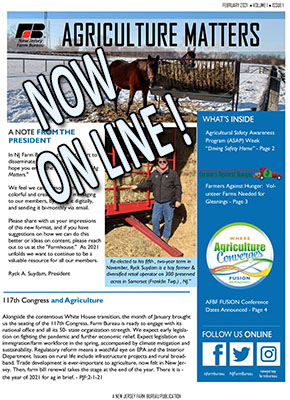Actions taken by NJ are also being
taken by The governors of NY and Connecticut
the goal is a regional approach to this outbreak.
On Monday March 16 Governor Phil Murphy signed Executive Order No. 104 to mitigate further spread of COVID-19 in New Jersey a copy of the Executive Order (EO) is here https://nj.gov/infobank/eo/056murphy/pdf/EO-104.pdf
In order to slow the spread of COVID-19, Governor Murphy’s executive order directs:
– All gatherings of persons in the State of New Jersey shall be limited to 50 persons or fewer, with limited exceptions;
– All public, private, and parochial preschool programs, and elementary and secondary schools, including charter and renaissance schools, will be closed beginning on Wednesday, March 18, 2020, and remain closed as long as the Order remains in effect;
– Institutions of higher education will cease all in-person instruction beginning on Wednesday, March 18, 2020, and shall cease such in-person instruction as long as the Order remains in effect;
– All casinos, concert venues, nightclubs, racetracks, gyms, fitness centers and classes, movie theaters, and performing arts centers will be closed to the public beginning on Monday, March 16, 2020 at 8:00 p.m. and remain closed as long as this Order remains in effect;
– All other non-essential retail, recreational, and entertainment businesses must cease daily operations from 8:00 p.m. until 5:00 a.m.; and
– All restaurant establishments, with or without a liquor or limited brewery license, are limited to offering delivery and/or take out-services only.
On Tuesday (3-17-20) evening the order was expanded to:
– All indoor portions of retail shopping malls. Restaurants and other stores located within shopping malls that have their own external entrances open to the public, separate from the general mall entrance, may remain open as long as they comply with prior directives on operating hours and takeout or food delivery services.
– All places of public amusement, whether indoors or outdoors, including but not limited to, locations with amusement rides, carnivals, amusement parks, water parks, aquariums, zoos, arcades, fairs, children’s play centers, funplexes, theme parks, bowling alleys, family and children’s attractions.
The Administrative Order does not apply to public
parks and open recreation areas.
On Thursday (3-19-20) the order was expanded to include the The closure of all personal-care businesses and social clubs which cannot comply with social distancing guidelines, until further notice, including:
• Barber shops
• Hair salons
• Spas
• Nail and eyelash salons
• Tattoo parlors
The most important part of EO104 is the preemption of Local regulations –
No municipality, county, or any other agency or political subdivision of this State shall enact or enforce any order, rule, regulation, ordinance, or resolution which will or might in any way conflict with any of the provisions of this Executive Order, or which will in any way interfere with or impede its achievement.
This means that the state-wide regulations over businesses are the ones to be followed if you have specific question there is the business action center website that can address your business concerns.
For agriculture businesses Farm Markets, Pet/feed supply stores, nurseries, garden centers, florists you can all operate as long as you open after 5am and close before 8pm. You must also limit building access to no more than 50 customers and encourage social distancing 6 feet from each other. This is important as obeying the rules is what will keep these businesses open.
For employees hours can be different
than those for the public for restocking and shipping of product in and out of
a business.
The Federal Government as also activated the Small Business Administration to offer low interest lows to businesses to get through the crisis. Their information and programs are on their website. Please review them to see if they can help your business. https://disasterloan.sba.gov/ela


